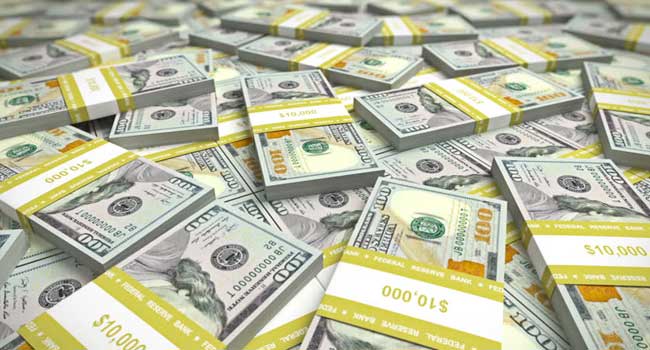
FOREIGN EXCHANGE: EXTERNAL RESERVES HIT 22-MONTH HIGH TO $37.31 BILLION – CBN
Nigeria’s external reserves have reached a 22-month high of $37.31 billion, indicating considerable foreign inflows into the country’s economy.
According to data from the Central Bank of Nigeria (CBN), the reserves reached their greatest level on September 18, 2024, since November 4, 2022, when they were $37.36 billion.
This is a significant improvement in Nigeria’s foreign currency status.
READ ALSO:
UPDATE: BEIJING SLAMS REPORTED US TRADE BAN ON CARS WITH CHINESE TECH
External reserves represent the country’s foreign currency holdings. However, they have had no significant impact on the plummeting naira, which was named one of the world’s ten worst-performing currencies by Bloomberg on September 20. The reserves are an important indicator of a country’s ability to meet international financial obligations while also stabilising its currency.
On a year-to-date basis, the country’s reserves increased by 12.99%, or $4.29 billion, from $33.02 billion at the start of the year on January 2, 2024.
Several variables have influenced the increase of external reserves. Key sources of inflows include the federal government’s domestic dollar bonds, which attracted foreign investment; remittance inflows from Nigerians abroad; multilateral loans from international organisations; and foreign portfolio investments.
Nigeria’s foreign reserves increased by 12% year on year, adding $4.03 billion to the $33.28 billion recorded on September 18, 2023.
The federal government raised more than $900 million from investors by issuing $500 million in the first round of the $2 billion domestic US dollar bond intended to stabilise the economy.
Nigeria recorded $553m in remittances in one year, between July 2023 and July 2024, according to the CBN.
Other inflows into the country’s economy over the period include a $3.3 billion AfreximBank oil facility and $2.25 billion from the World Bank Group.
Foreign exchange inflows through the economy increased by 57% in one year as a result of the CBN’s continuous policy.
According to CBN data, the country received $8.86 billion in foreign exchange in February 2024, up from $5.66 billion in the same month in 2023.
The CBN’s February 2024 economic report indicated that fresh investments into the economy surged dramatically to $1.24 billion, up from $0.33 billion in January 2024.
Foreign direct investment inflows increased to $0.06 billion from $0.03 billion in the previous month. Portfolio investment inflows grew to $0.80 billion from $0.12 billion as money market and bond returns rose. Similarly, other investment capital, primarily loans, increased to $0.37 billion from $0.18 billion in the prior period.
